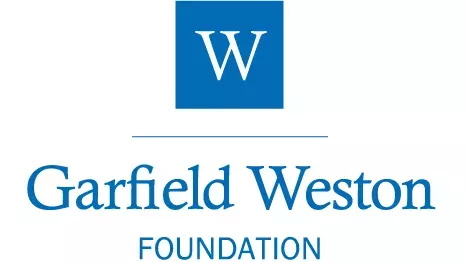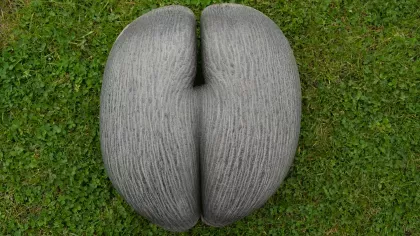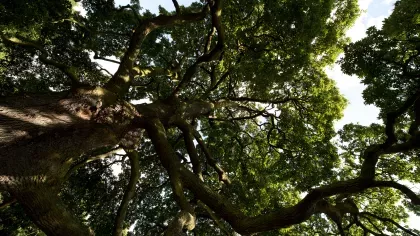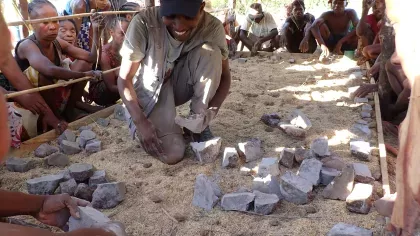The Weston Global Tree Seed Bank Programme
Conserving the increasing numbers of threatened trees globally as a significant resource for humankind

Funded over a series of phases, the programme started in 2014, with the establishment of the Weston Global Tree Seed Bank based at the Millennium Seed Bank (MSB), where the seeds of around 11,000 tree and shrub species were already conserved.
From 2015, the MSB worked with partner organisations in 41 countries across the world with the aim of conserving over 3,000 of the rarest, most threatened and useful trees. In addition, research carried out at Kew and by our partners started to fill vital gaps in our knowledge of science underpinning effective tree conservation.
The third phase (2019-2023) included five new partnerships and complementing our seed collecting activities, we expanded our programme of research at our partner organisations as well as here at Kew. The programme also had a substantial training and capacity building element, working to strengthen partner organisations’ long-term capacity to carry out seed conservation work. This included continuation of the MSB’s flagship Seed Conservation Techniques course and the provision of various smaller scale and online training sessions, accessible to a wider conservation community.
At the start of 2024, we started a new exciting phase of the programme, called the Weston Global Tree Seed Bank: Unlocked. Through this phase we are moving from collecting seeds for conservation and research, into a position where we are utilising the collections we have made, for restoration, and where we can scale up native seed supply to enhance our conservation impact.
This is becoming increasingly important as funding for restoration snowballs – we want to ensure best practise and enable the use of native endemic species for restoration projects. We are also aiming to overcome other barriers to successful restoration such as lack of knowledge about changing phenology of some species due to climate change, propagation and stress tolerance traits. We are working with local communities to maximise the impact of our work and ensure its sustainability beyond the programme lifetime.
Countries and Territories Contributing to the Global Tree Seed Bank Programme

Objectives
The programme’s ambitious goals, for 2024-2026:
- Improved capacity and seed conservation outcomes at partner organisations applying recognised MSBP standards
- To further develop understanding of desiccation and low temperature stress tolerance of tree seeds and pollen, to enhance the cryopreservation and post-storage recovery of tree species for conservation and reforestation
- To improve forest restoration outcomes by developing genetic knowledge to guide the sourcing and use of seeds in large scale forest restoration
- To improve global forest restoration outcomes through extending the supply of native seeds and improving the knowledge base informing their collection and use.
- To develop capacity, knowledge and resources to support the conservation and restoration of Indonesia’s megadiverse forests
- To improve the capacity and capability of practitioners within the Asia-Pacific region to enhance the conservation outcomes of woody species
- To enhance the conservation and usability of the South Caucasus woody species seed collection.
- To further develop capacity for the conservation and use of native tree seed in Ghana, Guinea and Sierra Leone
- To further develop capacity for the conservation and restoration of Madagascar’s globally important biodiverse forests
- To restore the natural capital of Mexican forests by mainstreaming the conservation and use of tree diversity and its ecosystem services in reforestation activities
- To recover the threatened Magnolia forests of the Dominican Republic through the conservation and research of the Magnolia species and the conservation of the seeds of the other species that grow in their habitats
Lead Department
Project Leader
Project Manager
Team
Anne Visscher
Athena Tang
Charlotte Lawrence
Claude Razilibera
Diana Carolina Acosta Rojas
Dr William Millliken
Duncan Sanders
Elinor Breman
Ellen Mascard
Eric Rakotoniaina
Hanna Oldfield
Henintsoa Razanajatovo
Inna Birchenko
Jan Sala Vila
Jennifer Peach
Jenny Williams
Johnny Randriafenontsoa
Kaitalin White
Kate Hardwick
Kathy Gibb
Lalatahiana Davy Randriatavy
Lalatiana Rajoelson
Louise Colville
Marcella Corcoran
Michael Way
Mike Fay
Namrata Pradhan
Naomi Carvey
Nomentsoa Randriamamonjy
Sally Lambert
Silvia Bacci
Stephano Andriamiadana
Stuart Cable
Tim Pearce
Valisoa Louiscael Rafaralahy
Vonona Randrianasolo
Xander Van der Burgt
Phase 4 partners:
Thailand
Chiang Mai University’s Forest Restoration Research Unit
Indonesia
Caucasus
National Botanical Garden of Georgia
Niko Ketskhoveli Institute of Botany, Georgia
Institute of Botany, Azerbaijan
West Africa
Forestry Research Institute of Ghana
Department of Biological Sciences at Njala University, Sierra Leone
Madagascar
Silo National des Graines Forestières
Mexico
Facultad de Estudios Superiores Iztacala, Universidad Nacional Autónoma de México
Dominican Republic
We are working with many different organisations, partners, stakeholders, collaborators across our network, and during past phases of the programme we have worked with more and different partners. For more information on these working relationships, get in touch!
Up until the end of 2023 – the end of the third phase of the programme, we made collections of over 3,500 species from 40 countries and territories around the world. We also made significant progress towards enhancing the capacity of our partner institutions and we have run various training courses alongside a wide-reaching programme of research, with over 50 peer-reviewed publications.
The Weston Global Tree Seed Bank Programme is generously funded by the Garfield Weston Foundation

Pradhan, N., A. Visscher and L. Colville (2024).
Unlocking seed functional trait diversity and stress resilience of trees to enhance ex situ conservation using cryobiotechnology.
XX International Botanical Congress, Madrid, Spain
Sampayo-Maldonado, S.; Ordoñez-Salanueva, C.A.; Mattana, E.; Way, M.; Castillo-Lorenzo, E.; Dávila-Aranda, P.D.; Lira-Saade, R.; Téllez-Valdés, O.; Rodríguez-Arévalo, N.I.; Flores-Ortiz, C.M.; et al. (2023)
Potential Distribution of Cedrela odorata L. in Mexico according to Its Optimal Thermal Range for Seed Germination under Different Climate Change Scenarios.
Plants 2023,12, 150.
Beech, E., Rivers, M., Rabarimanarivo, M., Ravololomanana, N., Manjato, N., Lantoarisoa, F., Andriambololonera, S., Randrianasolo, V., et al. (2021)
The Red List of Trees of Madagascar.
Botanic Gardens Conservation International.
Pence, V. C., Meyer, A., Linsky, J., et al. (2022)
Defining exceptional species—A conceptual framework to expand and advance ex situ conservation of plant diversity beyond conventional seed banking.
Biological Conservation 266: 109440.
Van der Burgt, X. M., Pepe M., Haba, Magassouba S. & Veranso-Libalah, M. C. (2021)
Benna alternifolia (Melastomataceae: Sonerileae), a new herbaceous genus and species from Guinea, West Africa.
Willdenowia 52: 25 – 37.
Ballesteros, D. & Pritchard, H.W. (2020)
The Cryobiotechnology of Oaks: An Integration of Approaches for the Long-Term Ex Situ Conservation of Quercus Species.
Forests 11: 1281.
Tellez, O., Mattana, E., Diazgrandos, M., et al. (2020)
Native trees of Mexico: diversity, distribution, uses and conservation.
PeerJ 8: e9898
Bellot, S., Bayton, R.P., Couvreur, T.L.P., et al. (2020)
On the origin of giant seeds: the macroevolution of the double coconut (Lodoicea maldivica) and its relatives (Borasseae, Arecaceae).
New Phytologist
Ballesteros, D., Nebot, A., & Pritchard, H. W. (2019)
Cryobiotechnology for the long-term preservation of oak (Quercus sp.) genetic resources.
Acta Horticulturae, 1234: 37-46.
Butel, P., Fanega-Sleziak, N., Nebot, A., Pritchard, H. W., & Ballesteros, D. (2019).
Cryobiotechnological approaches for the preservation of Aesculus sp.
Cryobiology, 91: 194.
Johnson, M.G., Pokorny, L., Dodsworth, S., et al. (2019)
A universal probe set for targeted sequencing of 353 nuclear genes from any flowering plant designed using k-medoids clustering.
Systematic Biology 68: 594-606.
Mattana, E., Peguero, B., Di Sacco, A., et al. (2019)
Assessing seed desiccation responses of native trees in the Caribbean.
New Forests, 1-17.
Mattana, E., Garcia, R., Encarnacion, W., Clase, T., Manger, K.R., Peguero, B., Way, M.J., Jimenez, F., Ulian, T. (2017).
A new seed bank for Hispaniola: a platform to support the conservation and sustainable use of the Caribbean native flora.
Oryx, 51 (3): 394-395.
Pritchard, H.W., Nadarajan, J., Ballesteros, D., et al. (2017)
Cryobiotechnology of tropical seeds – scale, scope and hope.
Acta Horticulturae 1167: 37-47.
Roma-Marzio, F., Bedini, G., Müller, J.V. & Peruzzi, L. (2016)
A critical checklist of the woody flora of Tuscany (Italy).
Phyotaxa 287: 1–135.

Sacred trees under threat
For further information please contact Clare Callow, Global Tree Conservation Projects Manager at the Millennium Seed Bank.







